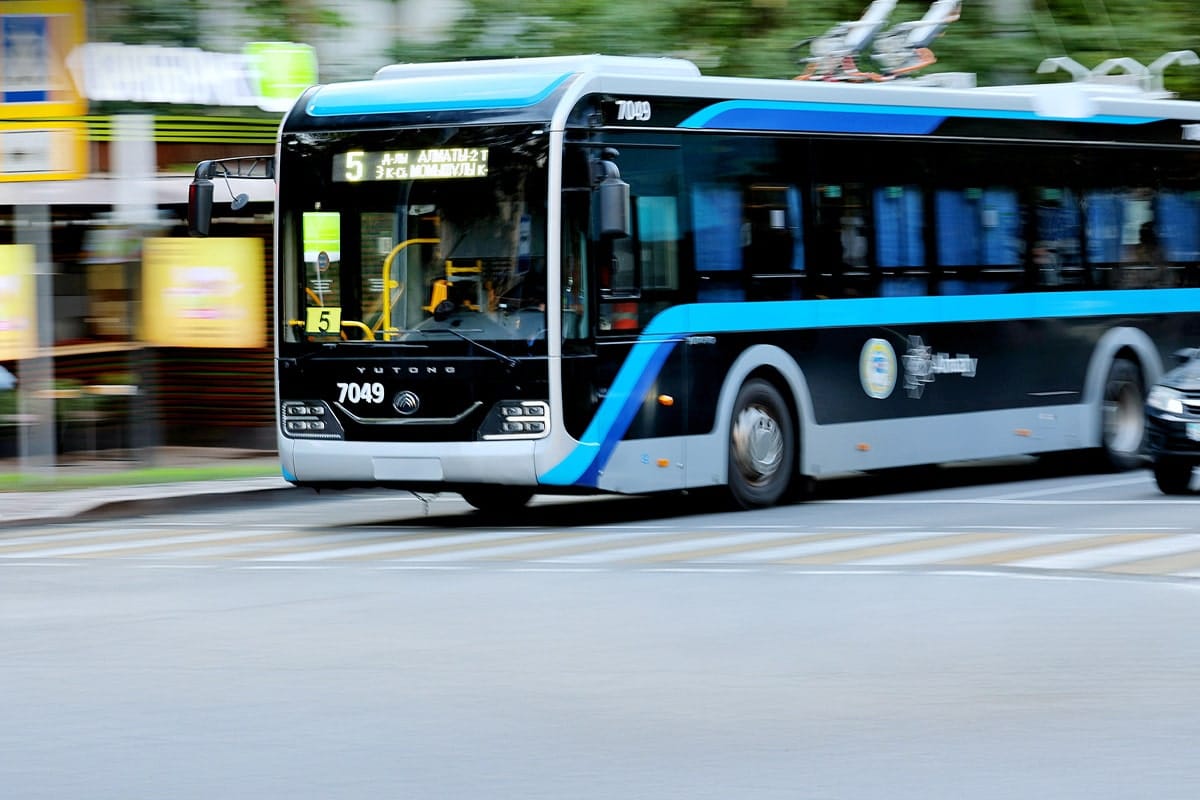
Yutong expands rapidly in Europe with local strategy
Yutong, a leading Chinese electric bus manufacturer, has strengthened its footprint in Europe, becoming a key player in the region’s shift to sustainable mobility. In 2022, Yutong led the European electric bus market with 479 registrations, securing an 11.5% share and surpassing established European brands including Mercedes-Benz and Volvo. According to Sustainable Bus, this momentum continued into 2024, with Yutong nearly doubling its deliveries to 1,092 electric buses compared to 483 in 2023. This surge lifted the company’s European share to 14%, underlining its rapid rise.
The picture from China offers a slightly different angle. As reported, according to the portal China Bus, BYD exported the highest number of NEV buses last year, shipping 3,582 units abroad and becoming the only manufacturer to surpass the 3,000 mark. Yutong ranked second with 2,700 vehicles, followed by Higer Bus with 1,897 units. Even so, Yutong achieved an 84.5% increase in overseas sales in 2024 — a clear sign of accelerating global reach.
Nevertheless, it is safe to say that Yutong is among the best-selling Chinese electric bus makers in Europe.
Focus is not on a single market
The company is looking to grow: Its roadmap emphasises sustainable innovation, localised operations and customer-focused solutions. This includes expanding the product matrix to comply with European standards, strengthening local partnerships, and reinforcing after-sales support.
Jack Li, CEO of Yutong Central and Northern Europe, told electrive that over the next five years, Yutong intends to deepen its new energy bus business in Europe. He explained that the company will adhere to a customer-oriented approach, accelerate localisation, and further its green and sustainable development goals. Li also stressed that Yutong’s “focus is not on a single market, but on how to build a comprehensive and flexible European network through continuous innovation, reliable services, and long-term partnerships to support the local transport system’s transition to new energy and green transformation.”
Yutong identifies three key challenges in Europe: regulatory alignment, customer trust, and localisation. Li pointed out that the European regulatory system is rigorous, with strict requirements for vehicle safety, environmental protection, and certification. To address this, the company has stepped up R&D and compliance efforts.
Building customer trust is equally important. Li noted that European customers make rational choices, prioritising long-term operational performance and service quality. To meet these expectations, Yutong emphasises operational data from fleets already in service. Local capability building is another strategic pillar. In France, Yutong has opened a 4,600 m² central warehouse holding more than 45,000 spare parts for 13 surrounding countries, which Li said ensures timely and reliable service. Localised teams also provide faster responses and closer customer engagement.
Extensive lineup
A quick technical digression. Yutong’s European line-up spans models from seven to 18 metres. Its flagship, the E18Pro, is an articulated bus with space for 160 passengers, a low-floor design, and a 563 kWh battery. The U18, another 18-metre model, carries 120 passengers and comes with a larger 621 kWh pack. At the smaller end, the 7-metre E7S seats up to 30 people and is equipped with a 134 kWh battery.
The portfolio was recently expanded with the IC12E electric intercity bus, launched in several European cities and noted by Yutong as well as recognised by customers and industry media. This model features a high-density battery of 399.92 kWh as standard, with an optional 465.99 kWh pack for ranges up to 610 kilometres.
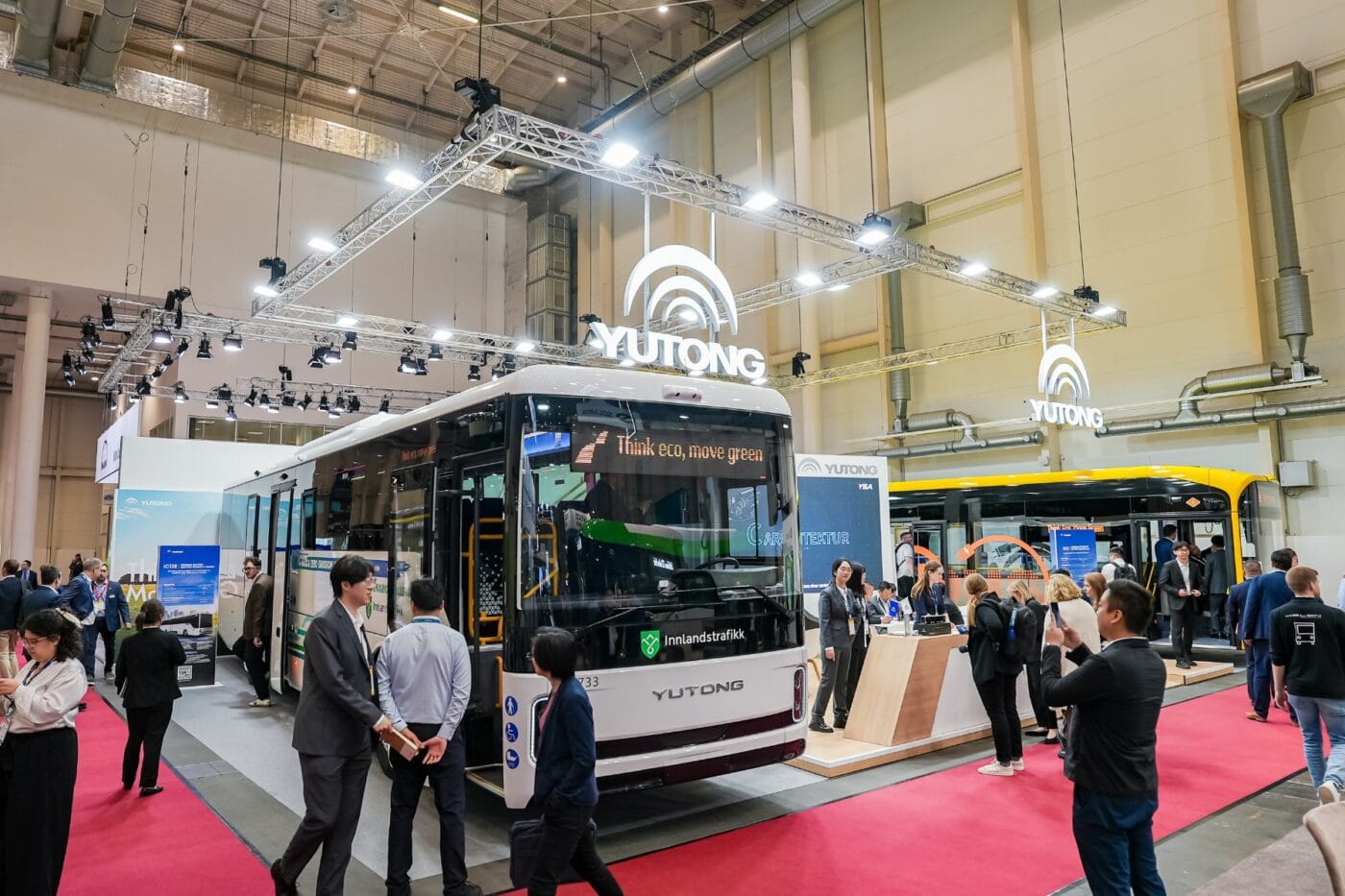
Moreover, the manufacturer’s U12DD electric double-decker recently got an update. The electric bus is twelve metres long and has a layout with three doors and two staircases. It offers space for up to 120 passengers and boasts a long range of up to 670 kilometres thanks to its 621 kWh battery. The EU-compliant dual-gun charging with a maximum output of 350 kW should enable a full charge in approximately two hours.
It is Yutong’s flagship vehicle for international markets, and the company sees great potential overseas, especially for the UK market. However, it will first launch in Singapore.
UK: decade-long partnership and double-deckers
The UK has been a priority market for Yutong for more than a decade, according to Herbert He, Managing Director for the UK. That is no surprise, as it is also the biggest market for electric buses in Europe. Yutong has sold more than 2,000 buses there – nearly half of those were purely electric. Just in September, Scottish public transport operator McGill’s put 30 Yutong E12 single-decker electric buses into service under its Midland Bluebird brand, while the Leicestershire-based Kinchbus placed an order for 21 of Yutong single-deckers in May.
“In the UK, we not only provide vehicles but also focus on in-depth collaboration with local municipalities, public transport authorities, and major operators,” He explained. “Together with our partners, we actively participate in communications with transport authorities and operators to jointly promote pilot operations and support the sustainable development of green transport.”
That success resulted in an electric double-decker bus, designed specifically for London, and developed in line with Transport for London’s requirements, says the Chinese manufacturer. Testing is currently underway at the Millbrook UTAC proving ground. “This local effort not only demonstrates our commitment to promoting the green transition of urban public transport in the UK, but also ensures that rural and regional markets can also obtain stable and reliable zero-emission solutions,” the Yutong manager concluded.
With the expansion of the ZEBRA (Zero Emission Bus Regional Areas) funding scheme, Yutong and its partner are preparing bids. He explained that their cooperation model focuses on full-chain support, including regulatory compliance, local vehicle design, project applications, and follow-up operation services. He added, “It is worth emphasizing that Yutong and its partners continue to increase investment in personnel, parts, and premises. This enables us to demonstrate a true local commitment and sense of responsibility when supporting green transport projects.”
Yutong has also built a nationwide UK service and parts network, offering IMI-approved EV training for drivers and technicians. He emphasised that this not only ensures vehicle reliability across their life cycle but also reflects Yutong’s long-term commitment to the UK market.
Meeting Germany’s high standards
Yutong is also active in other European markets, such as Greece, the Netherlands, Poland, and Germany. However, “Germany is one of the most technologically demanding and fiercely competitive markets in Europe, with extremely high requirements for local supply chains and certification systems,” stated Ivan Liu, Managing Director for Poland at Yutong.
The company is progressing with TÜV certifications, tailoring vehicles to German operators, and assessing localisation strategies. Liu noted that German customers expect high service responsiveness, parts availability, and strong long-term maintenance support. To meet these demands, Yutong plans to establish a local warehousing system, build partnerships with technical service providers, and roll out the Link+ digital platform, which will enable fault monitoring, energy tracking, and preventive maintenance.
Nevertheless, in the manufacturer rankings, Yutong defended its leading position in the market at the halfway point of the year in Germany: 852 registrations in Europe were for the Chinese brand, corresponding to a 16 per cent share of the European BEV market. MAN was in second place (708 units, +60% YoY) with a 13.3 per cent market share, followed by Daimler Buses with 682 BEV buses and a 12.8 per cent share.
“We have great respect for the high standards of the German market, which are not only a challenge but also an incentive for manufacturing enterprises,” He said, adding that Yutong hopes to “win recognition in the German market with truly high-quality products and services.”
Adding electric trucks to the mix
Yutong also just recently launched a small electric truck in the UK. The Yutong TE7 (initially called the T75e when it was first introduced at the beginning of the year) is available with two battery sizes, namely 100 or 132 kWh, and ranges of up to 180 miles (290 km). It is distributed in the UK and Ireland by Yutong’s longtime partner Pelican, which aims to sell some 250 units by the end of the year.
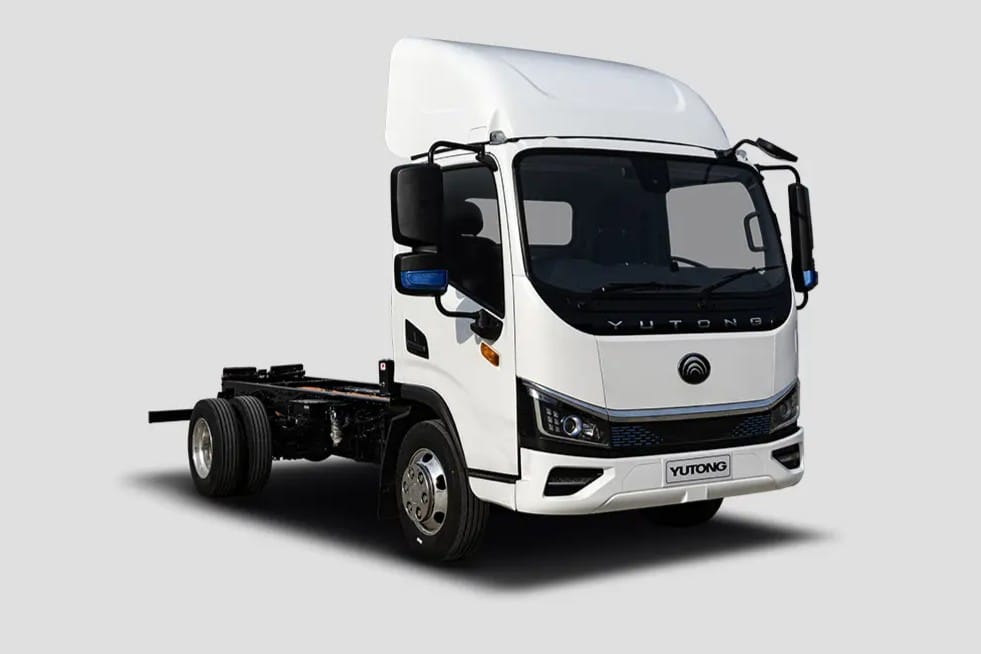
The aforementioned battery is supplied by CATL, while the electric drive offers a peak power of 100 or 200 kW, depending on the variant. DC charging capacity is 120 kW, meaning the vehicle can be charged from 20 to 80 per cent in about 35 minutes.
The Chinese company is not the first bus manufacturer to venture into the truck business. UK competitor Wrightbus announced around the same time that it would launch an electric truck. One reason might be that the bus market, especially in the UK, is highly competitive. However, there is more room for growth in the logistics sector.
It remains to be seen whether the TE7 can mimic the success of Yutong’s electric buses in the UK – and possibly across Europe.

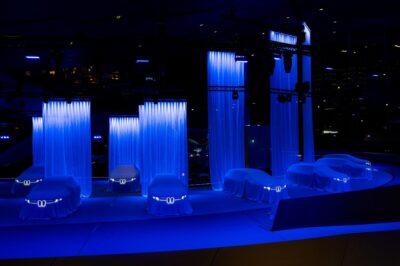
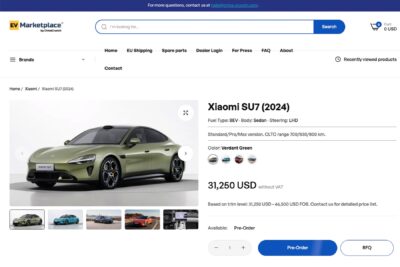
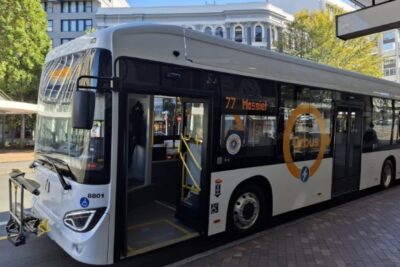
0 Comments